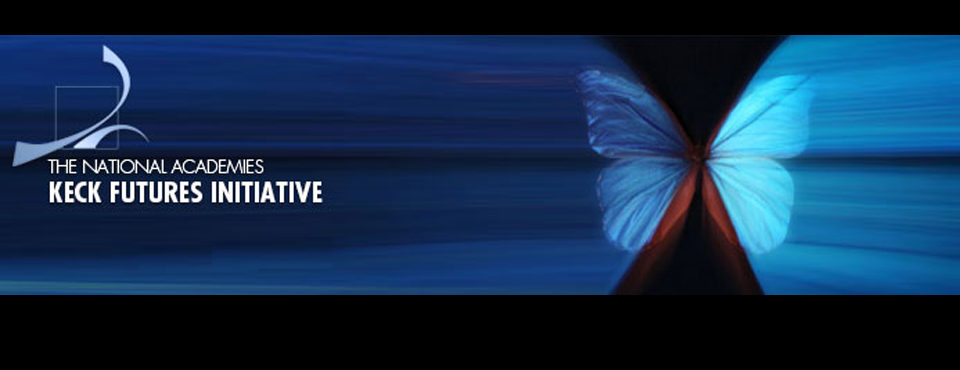
Kalev participated in the 2014 National Academies Keck Futures Initiative (NAKFI) Conference “Collective Behavior: From Cells to Societies” last week in Irvine, CA. The conference’s vision statement is closely aligned with the vision and goals of the GDELT Project and we are incredibly honored and excited to be a part of a second NAKFI conference!
The NAKFI conference on social behaviors is intended to initiate a new synthesis of the regulation, dynamics and evolution of social behavior from microbes to metazoans. The conference will help forge a dynamic research community out of scientists, engineers and doctors using disparate approaches to a common problem: how and why do molecules, cells and organisms communicate with each other and modify their activities based on these communications? This NAKFI conference will bring together physician-scientists defining the molecular mechanisms and consequences of signaling in cell-cell communication; evolutionary biologists and ecologists studying dynamic spatial and temporal interactions of complex communities from biofilms to animal groups; quantitative and theoretical experts predicting and modeling social networks; and engineers and applied systems specialists harnessing community organization for the development of useful medical products and bioremediation strategies.
Kalev also participated in the 2012 National Academies Keck Futures Initiative, The Informed Brain in a Digital World, from which he received two NAS Keck Futures grants. He is Principle Investigator of “Your Brain on Dashboards: Data & Decisions,” with Anthony Olcott, which focuses on how the concept of the dashboard is reshaping governmental decision making, and is Co-PI with Debra Weiner of Harvard University and Wei Lu of the University of Michigan, of “Lifelong Learning Locker, Life-Sciences Linker: Adaptive Learning, Content Management, Framework for Lifelong Learning and to Promote Innovation and Research Collaboration,” which focuses on how medical education of the nation’s future doctors can be reshaped using more intelligent teaching spaces that automatically adapt to the unique learning style and needs of each student.
The Keck Futures Initiative Conferences "bring together more than 100 of the nation’s best and brightest researchers from academic, industrial, and government laboratories to ask questions about – and to discover interdisciplinary connections between – important areas of cutting-edge research."